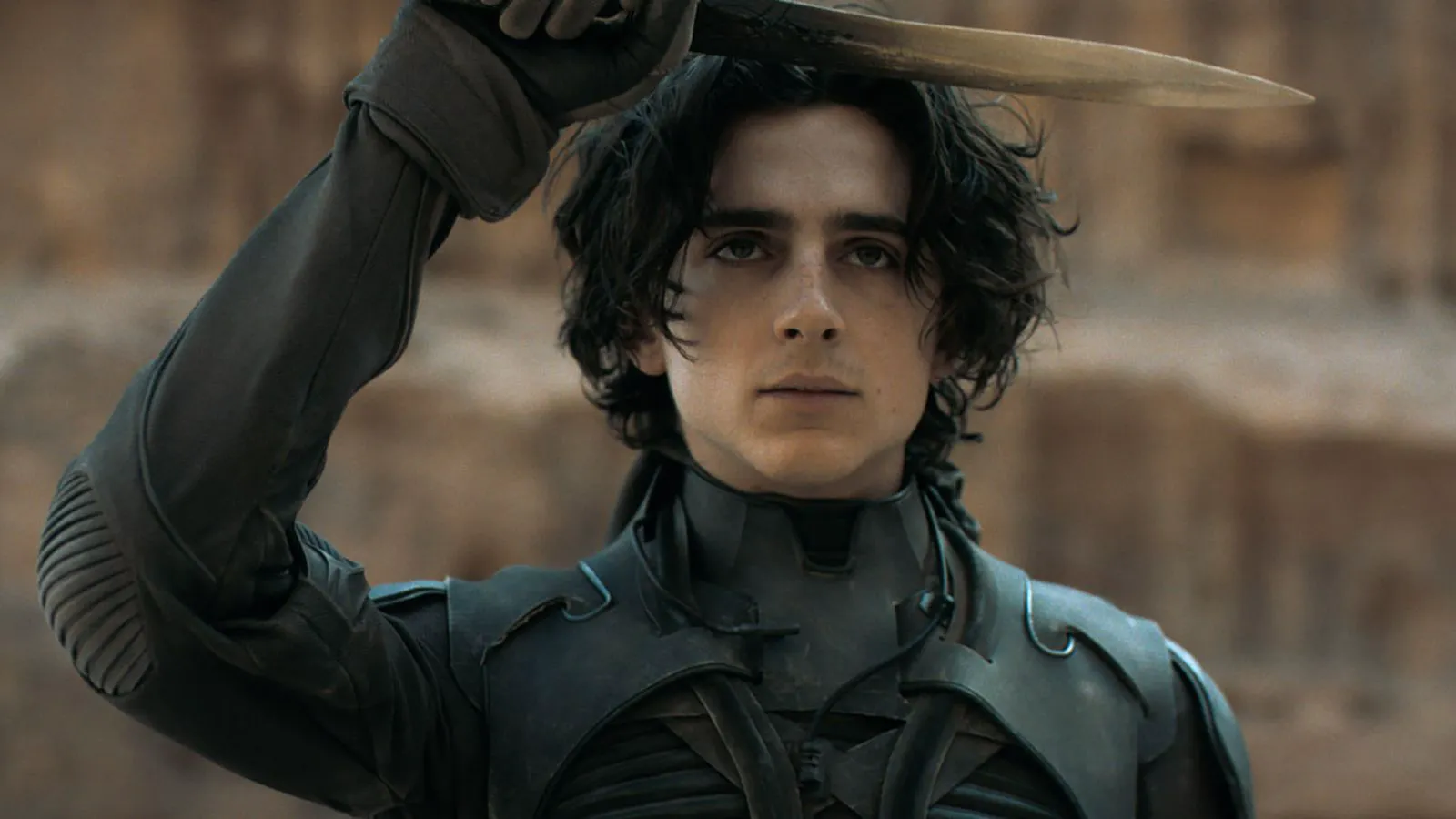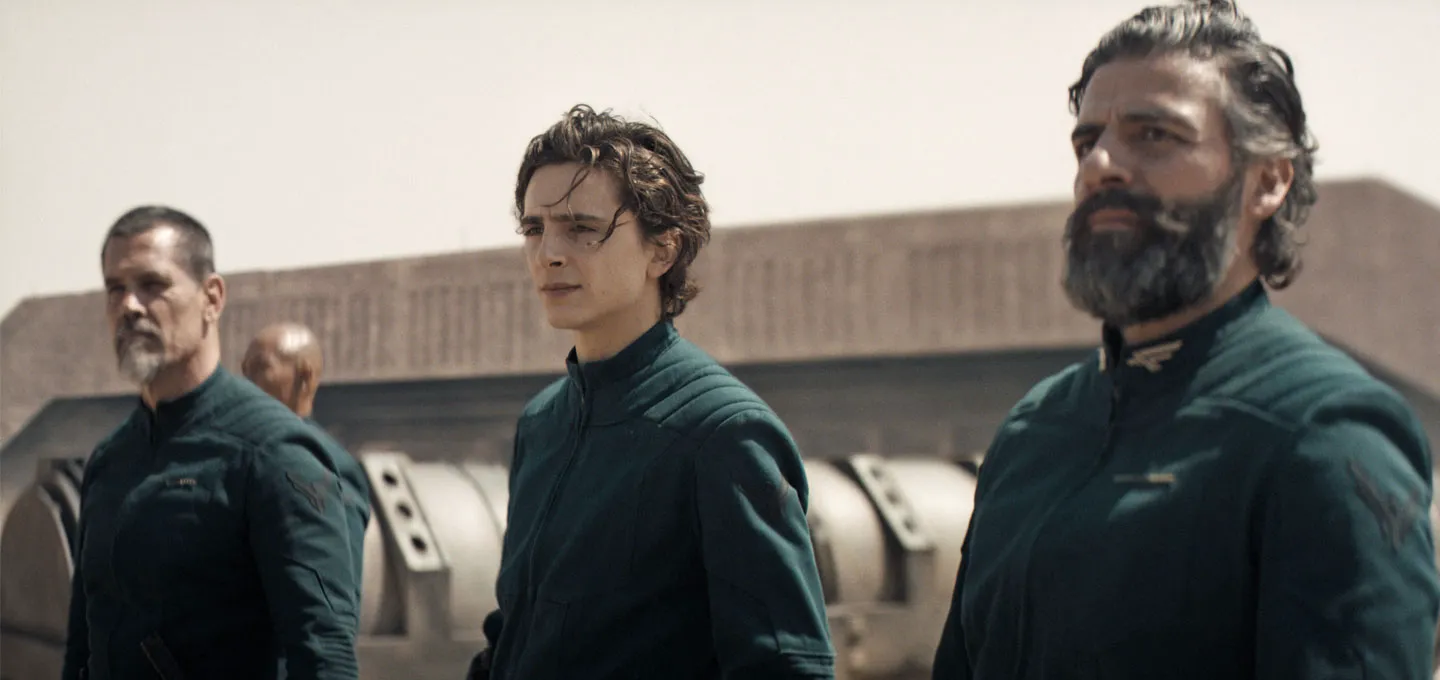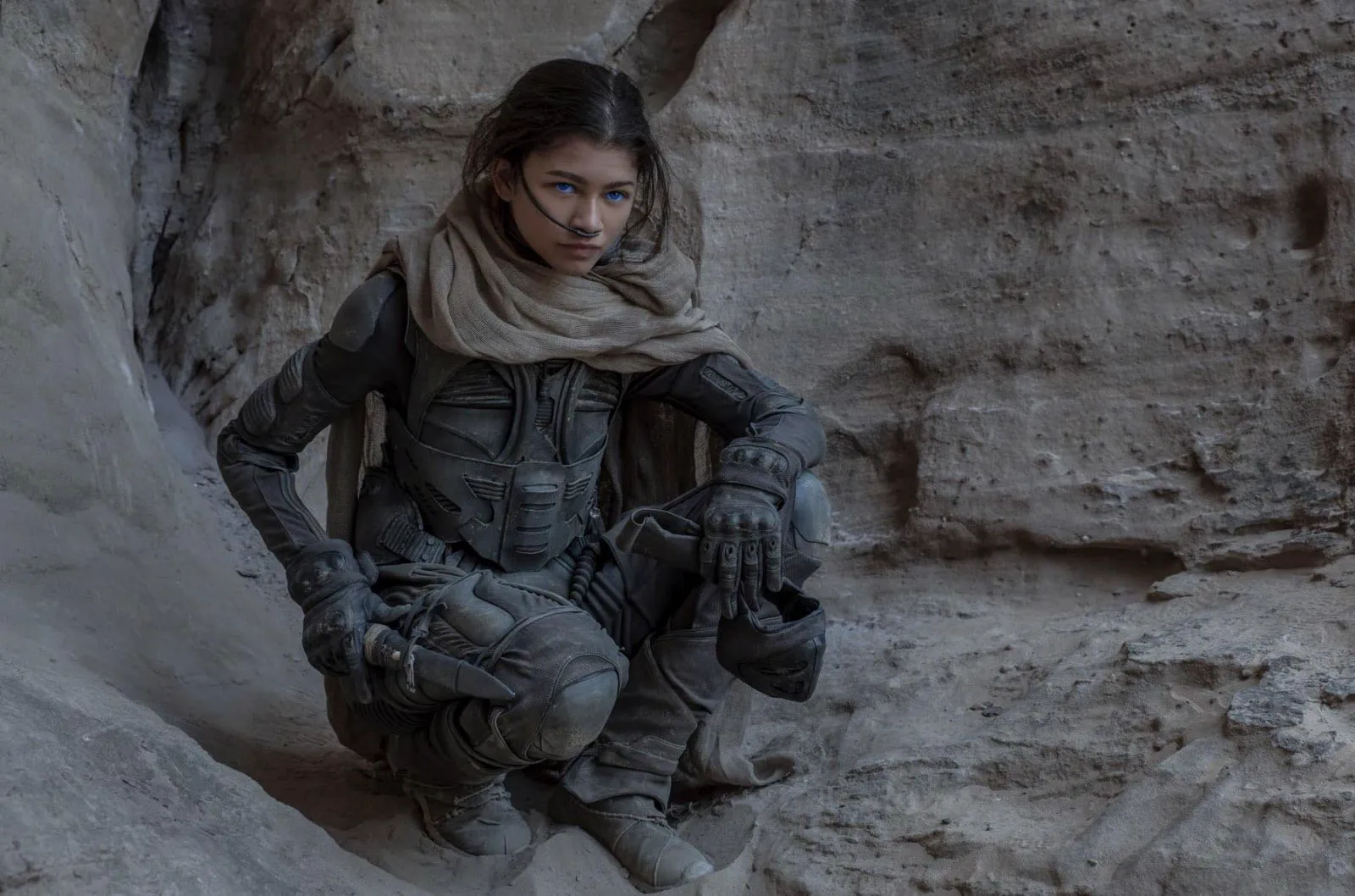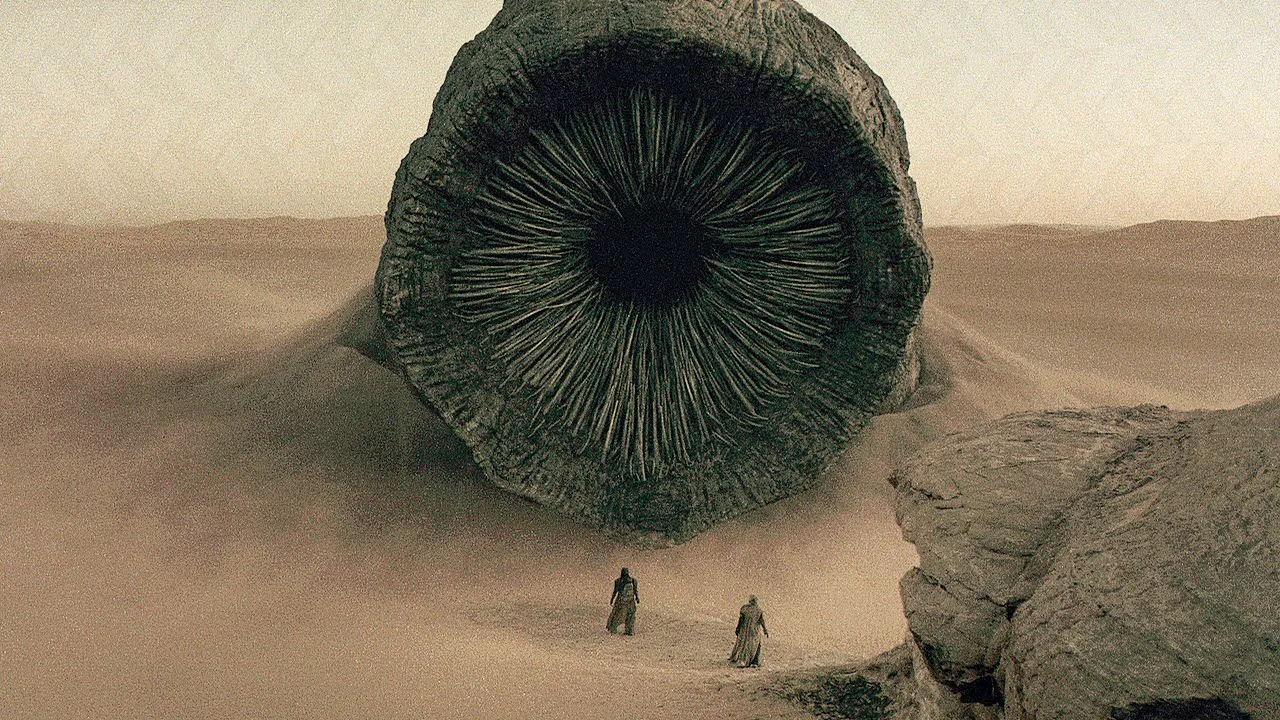Dune: A Cinematic Prelude to an Unfolding Saga
The esteemed House Atreides, led by Duke Leto (Oscar Isaac), is thrust into a pivotal role on Arrakis, tasked with overseeing the production of spice – the universe’s most coveted substance. This desert planet, once under the iron fist of the brutal House Harkonnen, who terrorized the native Fremen people, now presents a landscape of dilapidated machinery and simmering tensions. The Harkonnens, spearheaded by the formidable Baron Vladimir Harkonnen (Stellan Skarsgård) and his imposing nephew Glossu “Beast” Rabban (Dave Bautista), harbor no intention of relinquishing their claim on Arrakis and its lucrative spice trade, setting the stage for a looming, all-out war.
Amidst this brewing conflict, Paul Atreides (Timothée Chalamet), heir to House Atreides, grapples with his own destiny. Guided by his Bene Gesserit mother (Rebecca Ferguson), Paul hones his command of “the Voice” – a potent ability to influence others – while wrestling with visions of a Fremen woman (Zendaya) and a foreboding future. Between these hallucinatory episodes, he undergoes rigorous combat training under the watchful eye of warrior Gurney Halleck (Josh Brolin), preparing for the inevitable clash with their enemies.

Timothée Chalamet as Paul Atreides in “Dune”
A Faithful Adaptation, A Divisive Experience
“Dune” presents a unique challenge for critics, mirroring the viewing experience itself. While not overtly complex, even for those unfamiliar with Herbert’s novel, the film’s execution aligns closely with its ambitious scope. Director Denis Villeneuve has consistently emphasized his commitment to adhering to the source material, necessitating two full-length films to cover the first novel alone. Villeneuve’s signature style, characterized by contemplative pacing and deliberate pauses, further shapes the film’s tone. Moreover, Frank Herbert’s sprawling epic is not easily distilled into a lighthearted sci-fi spectacle, as previous attempts have demonstrated.

Timothée Chalamet as Paul Atreides in “Dune”
“Dune” struggles to fully realize its potential as a standalone film, a consequence of its foundational concept. It serves as a two-and-a-half-hour prologue to a story yet to unfold in future installments, whose production hinges on the success of this initial chapter. The film’s narrative structure resembles a pilot episode, albeit one lacking the self-contained elements typically found in television premieres.

Zendaya as Chani in “Dune”
World-Building Over Storytelling
While “Dune” meticulously introduces a rich tapestry of factions – Harkonnens and Atreides, Fremen and Sardaukar, Bene Gesserit and the enigmatic Muad’Dib – these elements remain largely disconnected from a cohesive narrative. The catalyst for the central conflict emerges late in the film, coinciding with the first major action sequence, while the protagonist’s quest only begins to take shape in the final moments. Prior to this, Paul Atreides meanders through the narrative, experiencing spice-induced visions, encountering Chani (Zendaya’s fleeting presence primarily involves gazing into the camera), and engaging in philosophical debates about his potential destiny. Comparisons to “The Fellowship of the Ring” fall short, as the latter possesses a clear internal structure and a defined objective for its characters.

Scene from “Dune”
“The Fellowship of the Ring,” while part of a larger narrative, boasts a self-contained story arc with characters driven by a clear goal. Villeneuve himself has previously excelled at crafting narratives with defined objectives, such as establishing contact with aliens or tracking down a kidnapped child. However, in “Dune,” the plot remains elusive, obscured by a relentless barrage of expositional scenes that prepare the audience for a story that never fully materializes.
Perhaps Villeneuve’s directorial style clashes with the source material’s inherent density, favoring visual storytelling over extensive dialogue. However, this is not necessarily a flaw on the director’s part. Frank Herbert’s novel thrives on its intricate descriptions of the future’s political, religious, and social structures, allowing readers to immerse themselves at their own pace. In contrast, a film, even one exceeding two and a half hours, presents a condensed experience within a fixed timeframe. “Dune” serves as a cautionary tale of what happens when a novel’s structure is transplanted onto the screen without adaptation, resulting in an impressive yet unwieldy creation that struggles to maintain its form. The arrival of the Atreides on Arrakis, the Harkonnens’ brooding machinations, and the Fremen’s simmering resentment – all of which could be conveyed concisely in another film – consume the majority of the runtime.
A Technically Brilliant, Yet Incomplete Experience
While literary purists may disagree, streamlining a novel is sometimes necessary for a successful adaptation. “Dune” is not inherently a bad film; it is a technically masterful blockbuster that prioritizes atmosphere and world-building over conventional entertainment. Villeneuve’s signature sound design is exceptional, rivaling even the stunning landscapes of Arrakis and the meticulously crafted details of the futuristic setting. Jason Momoa shines as the charismatic warrior Duncan Idaho, outshining some of his more established co-stars. Ultimately, “Dune” is a visually stunning and meticulously crafted adaptation that may appeal to those seeking a faithful rendition of Herbert’s novel. Whether this fidelity translates into a satisfying cinematic experience remains a matter of personal preference.